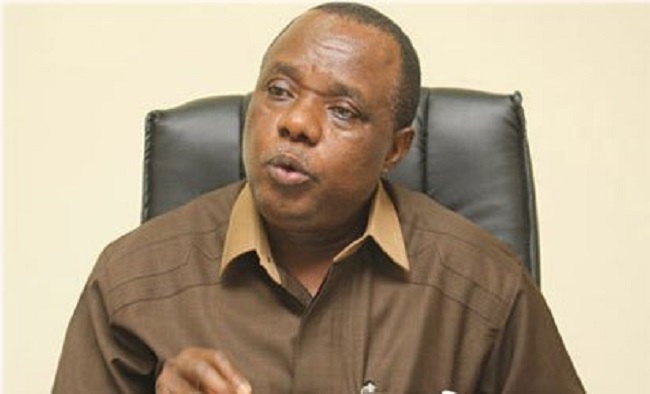THE government of six states that make up the SouthWest geopolitical zone; Ogun, Osun, Oyo, Ekiti, Ondo and Lagos have unanimously voted for a downward review of the Federal Government’s share of revenue accruing to the federation.
They also agreed that the same treatment given to oil-producing states in Nigeria should be given to all other states having solid minerals and other forms of natural resources. The state governors, through their respective commissioners for finance made their position known at the ongoing South-West zonal public hearing on review of revenue allocation formula, organised in Lagos by the Revenue Mobilisation Allocation and Fiscal Commission (RMAFC).
In his welcome address, the chief host and Governor of Lagos State, Mr Babajide Olusola Sanwo-Olu disclosed Lagos State government’s proposed revenue allocation formula as follows: Federal Government 34 per cent (including FCT Abuja’s one per cent); state government 42 per cent; Local government councils 23 per cent; Lagos State (special status) one per cent.
He further stated: “The 13 per cent derivation principle should be applied to all re- sources including solid minerals and tax revenue so that all federating units will be motivated and equitable distribution of resources will prevail.
“Our demand is a sharing formula that is just, fair and equitable; reflecting the contribution of stakeholders to the common purse and also one that enhances the capacity of state and local governments to deliver high-quality services and the full dividends of democracy to the greatest number of our people.”
Sanwo-Olu also used the opportunity to renew call for Lagos to be accorded special status. According to him, Lagos is more than just another state in the Nigerian federation.
“There is no tribe in the country that has no significant stake in Lagos State. As the former capital of the country for 77 years (compared to the 28 years that Abuja has been the Federal Capital Territory), Nigeria’s largest metropolis still bears the heavy brunt of being home to all Nigerians; irrespective of age, class, gender, religious affiliation or tribe,” he said.
Similarly, the Lagos State Commissioner for Finance, Dr Rabiu Olowo, in his submission endorsed Sanwo- Olu’s position, adding that the review was the first time in 29 years, after the maiden edition held last in 1992. The commissioner for Finance in Ogun State, Dr Dapo Ogunbadejo, said that the use of the population as a parameter for revenue allocation was outdated. Instead, he recommended the use of population density, stressing that the new formula should allocate: 30 per cent to FG, 45 per cent to states and 25 per cent to Local Government Areas. Also, Oyo State commissioner for finance Akiola Ojo, said a lot of responsibilities that Federal Government should handle is now left for state governments, especially security, yet the Federal Government still takes the highest revenue allocation.
He recommended on behalf of the state that: Federal Government should have 35 per cent, States 40 per cent while Local Government Areas should have 25 per cent allocation. Commissioners for Finance for Ekiti State, Ondo, Osun also made their submissions in line with others. Earlier in his address, the Chairman, Revenue Mobilisation Allocation and Fiscal Commission (RMAFC), Mr Elias N. Mbam, said that the last review of the revenue allocation formula was in 1992.
Since then a lot of socio-economic changes had occurred hence, necessitating the need for a review to reflect changing realities.
According to him, the Revenue Mobilisation Allocation and Fiscal Commission (RMAFC) by virtue of Paragraph 32(b), Part 1 of the Third Schedule to the 1999 Constitution of the Federal Republic of Nigeria (As Amended), is empowered “to review from time to time the Revenue Allocation Formula and principles in operation to ensure conformity with changing realities, provided that any Revenue Formula which had been accepted by an Act of the National Assembly shall remain in force for a period of not less than five years from the date of commencement of the Act.”
He said this zonal public hearing would also be replicated in the other five geopolitical zones.
YOU SHOULD NOT MISS THESE HEADLINES FROM NIGERIAN TRIBUNE
Lagos Is Second Least Liveable City In The World For 2021
Lagos is the second least liveable city in the world for the year 2021. This is according to the most recent annual ranking put together by the Economist Intelligence Unit (EIU)…
CLAIM 1: A Twitter user claims UNICEF said any efforts to block children from accessing pornography might infringe their human rights.
VERDICT: MISLEADING!




